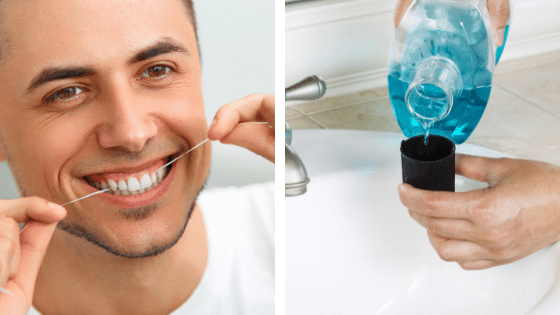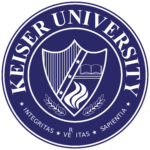If you have a proper oral care routine, you may use various products and tools. Mouthwash and dental floss are two common dental hygiene tools that people in New Jersey use. However, people often wonder whether mouthwash is more powerful and effective than dental floss. Regardless of what you use, both can help fight plaque and keep your breath fresh. 
Mouthwash contains antibacterial agents and it can quickly clean the surface of your teeth and freshen your breath. On the other hand, dental flossing requires more time. However, flossing can remove plaque and food particles from between the gaps of teeth, something that mouthwash cannot do. Therefore, this is where flossing stands out.
Both mouthwash and dental flossing are important components of a good dental hygiene routine. However, it is important to understand their benefits and limitations and use them accordingly. A dentist can tell you what is best for your oral health based on your personal needs. Visit a dentist in Bloomfield, NJ today.
The purpose of flossing
Flossing is an important part of a good oral hygiene routine. Flossing removes food particles and plaque from between your teeth and along the gumline. These are spaces where cavities and gum disease often start, but your toothbrush cannot reach them. By cleaning areas a toothbrush misses, flossing helps stop plaque buildup.
However, to avail of the benefits of flossing, one should know the proper technique for it. Improper flossing can irritate your gums or fail to clean effectively. Moreover, it can be time-consuming. Many people think flossing is inconvenient and skip it on most days. The complex process can make it hard to stick to the routine.
The role of mouthwash
Mouthwash is a convenient way of improving your oral hygiene. It takes only a few seconds to use it during your routine. Mouthwash helps freshen breath and remove bacteria in the mouth. Since it is liquid in nature, it reaches places that brushing and flossing may miss, like the tongue, cheeks, and throat.
The top benefits of mouthwash are that it is easy to use, instantly freshens your breath, promotes gum health, and fights cavities effectively. However, it still does not replace brushing or flossing. Relying solely on mouthwash will not prevent plaque buildup; it must be used alongside brushing and flossing.
Comparing mouthwash and flossing
Mouthwash and flossing are both important for a proper oral care routine, but they serve different purposes.
Effectiveness in removing plaque
Flossing is highly effective at removing plaque from between the teeth and along the gumline. Studies have shown that flossing, when done properly, can be very helpful for plaque removal.
On the other hand, mouthwash mainly acts as an antimicrobial agent. It helps kill bacteria in the mouth and can reduce bad breath. However, mouthwash does not physically remove plaque or food particles stuck between teeth.
Accessibility
Flossing is highly effective in what it does, but it is not always easy for everyone to incorporate it into their oral care routine. This is especially for people with limited time, limited dexterity, or those who wear braces. Moreover, knowing the proper technique is also important to enjoy its effectiveness.
Mouthwash is easier to use and requires less technique, making it a more accessible option for people of all ages.
Complementary use
Both mouthwash and flossing are important. Not using one will definitely give you less benefits than when you use both. It is best to use them together. While one reaches and cleans difficult spaces and prevents plaque build-up, the other quickly freshens your breath and kills bacteria.
Need expert dental advice?
Both mouthwash and flossing can help you achieve a healthy mouth and a bright smile. However, they do not replace regular dental check-ups at the dentist. Make sure to schedule a check-up at least twice a year to ensure optimal oral health!










